 W
WMihail Andreescu-Skeletty was a Romanian composer.
 W
WFilaret Barbu was a Romanian operetta composer.
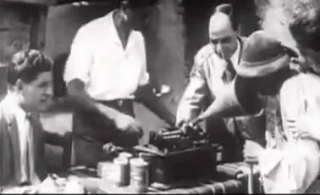 W
WConstantin Brăiloiu was a Romanian composer and internationally known ethnomusicologist.
 W
WHarry Brauner was an ethnomusicologist, composer, and professor of music from Romania.
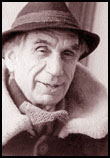 W
WMihai Brediceanu was a Romanian composer, conductor and musicologist, son of the composer Tiberiu Brediceanu.
 W
WTiberiu Brediceanu was a Romanian composer. He is the father of the composer and conductor Mihai Brediceanu.
 W
WGeorge Calboreanu was a Romanian actor and composer of the 20th century. He has acted in films like Lupeni 29 and Setea.
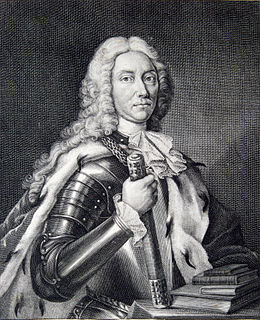 W
WDimitrie or Demetrius Cantemir, also known by other spellings, was a Moldavian soldier, statesman, and man of letters. He was twice voivode of Moldavia. During his second term, he allied his state with Russia in their war against Moldavia's Ottoman overlords; Russia's defeat forced Cantemir's family into exile and the replacement of the native voivodes by the Greek phanariots. Cantemir was also a prolific writer, variously a philosopher, historian, composer, musicologist, linguist, ethnographer, and geographer. His son Antioch, Russia's ambassador to Great Britain and France and a friend of Montesquieu and Voltaire, would go on to be known as "the father of Russian poetry".
 W
WCorina Chiriac is a Romanian singer, composer, lyricist, television director and actress. She was one of the most successful Romanian singers of the 1970s and 1980s.
 W
WVladimir Cosma is a Romanian-born French composer, conductor and violinist.
 W
WBoldizsár Csiky is a Romanian composer of Hungarian ethnicity. He was born in Târgu Mureș and began his musical studies at the Târgu Music School (1954–1955) before further study at the Conservatory in Cluj (1955–1961). He was awarded the Composers' Union Award in 1971, Romanian Academy Award in 1980 and the "Bartók – Pásztory" award at the Franz Liszt Academy of Music, Budapest in 1984. He was Director of Târgu Mureș Symphony Hall between 1990–1997 and professor of chamber music at the Music School in Târgu Mureș (1961–1970)
 W
WValentin Gheorghiu is a Romanian classical pianist and composer.
 W
WKároly Horváth was a Romanian-born composer and musician. He spent most of his professional life in Hungarian theatre.
 W
WAlexandru Hrisanide was a Romanian pianist and composer who was a representative of late 20th century Romanian avant-garde. A Netherlands resident since 1974, he taught piano and composition at the Amsterdam and Tilburg Academies of Music. Hrisanide’s music achieves an original synthesis between archaic melos and modes on the one hand, and the accomplishments of the modern Viennese school on the other. He won the Lili Boulanger Foundation Prize in 1965.
 W
WDumitru Georgescu Kiriac was a Romanian composer, conductor, and ethnomusicologist. He was particularly known for his sacred choral works and art songs which were based on the Romanian Orthodox tradition and Romanian folklore.
 W
WSorin Lerescu was born in Craiova and is a Romanian composer who studied at the National University of Music in Bucharest.
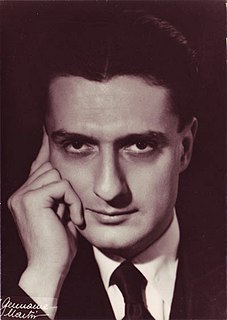 W
WConstantin "Dinu" Lipatti was a Romanian classical pianist and composer whose career was cut short by his death from causes related to Hodgkin's disease at age 33. He was elected posthumously to the Romanian Academy.
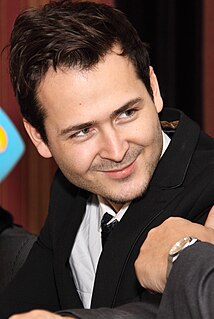 W
WEduard Marian Ilie, better known by his stage name Edward Maya, is a Romanian DJ, musician, record producer, performer and singer-songwriter, most famous for his 2009 smash hit single "Stereo Love".
 W
WTeo Milea is a Romanian pianist and composer. He lives in Toronto, Ontario, Canada.
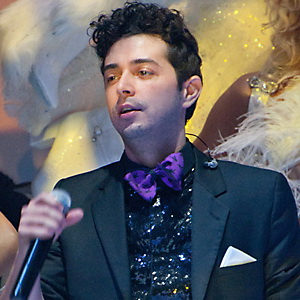 W
WMarius Moga is a Romanian producer, composer, and singer, known in Europe. He writes and produces music in various styles and genres, especially pop, R&B and club music. In 2011, he became the judge and mentor of the reality singing show Vocea României.
 W
WGavriil Musicescu was a Romanian composer, conductor and musicologist, father of the pianist and musical pedagogue Florica Musicescu.
 W
WGrigore Nica (1936-2009) was a Romanian composer, music teacher and performer.
 W
WRadu Paladi was a Romanian composer, pianist, and conductor. His compositions include stage and film music, choral works, vocal music and vocal-symphonic works, chamber music, symphonic music as well as concertos.
 W
WAnton Pann was an Ottoman-born Wallachian composer, musicologist, and Romanian-language poet, also noted for his activities as a printer, translator, and schoolteacher. Pann was an influential folklorist and collector of proverbs, as well as a lexicographer and textbook author.
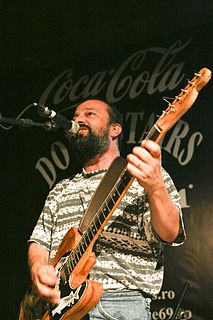 W
WIoan Gyuri Pascu was a Romanian pop music singer, producer, actor and comedian, also known for his participation in the comedy troupe Divertis and for his activity in Romanian cinema and television. Moving between rock music, rhythm and blues, reggae and jazz, the multi-instrumentalist Pascu founded a number of bands and registered success particularly during the early 1990s, when he was the lead singer of a group known as The Blue Workers. Pascu was the manager of several alternative music acts with his label Tempo Music, and remains an outspoken critic of Romanian commercial radio.
 W
WCristian Pațurcă was a Romanian composer.
 W
WGică Petrescu was a prolific Romanian folk music composer and performer. He made his debut at age 18 by joining a student band, having just graduated from the "Gheorghe Şincai" high school in Bucharest. His official debut was made by performing for radio audiences in 1937. Between 1937 and 1939, he carried on singing with the Radu Ghindă and Dinu Şerbănescu orchestras at the Sinaia Casino in the Carpathians.
 W
WThemistocles Popa was a Romanian composer, musician, and film actor.
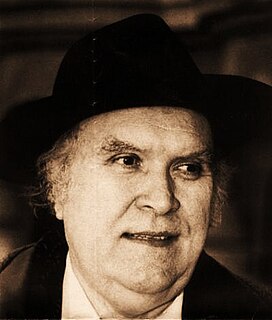 W
WIonel Doru Popovici was a Romanian composer, musicologist, writer and musical concerts manager.
 W
WGherasim Safirin was a Wallachian, later Romanian cleric who served as a bishop in the Romanian Orthodox Church and was deposed following a national controversy. Originally a schoolteacher, he felt attracted to monastery life an took orders in 1873, becoming a deacon the following year. His second career was as a seminary professor attached to the Râmnic Diocese, where, as principal, he also instituted a campaign for transparency and reform. He was eventually deposed, but still took over as vicar for two separate periods. A translator, polemicist, and composer of church music, he was eventually elected as the Bishop of Roman in 1900, and became a putative candidate for the Metropolitan Bishop in 1909. He lost the latter race to Atanasie Mironescu, his lifelong rival.
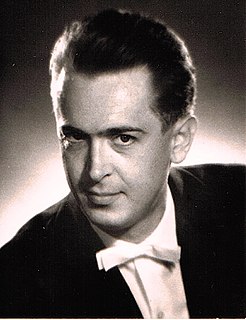 W
WEmil Simon was a Romanian conductor and composer.
 W
WAdrian Claudiu Sînă, better known as Adrian Sina or simply Adi Sina is a Romanian singer-songwriter, record producer, radio DJ and entertainer. He is best known for creating, producing and singing in the dance group Akcent and also for writing and producing mainstream hit songs for himself and other international artists. He started out as a disc jockey in the 1990s and then created a group with his fellow musician Ramona Barta. He came to prominence as a member of Akcent with the song "Ultima vară" in 1999. His group was joined by Marius Nedelcu, Sorin Brotnei and Mihai Gruia. Together they scored multiple number-one hits both in Romania and throughout Eastern Europe, especially in the mid- to late 2000s. Their albums have been certified multi-Platinum by the Uniunea Naţională a Producătorilor de Fonograme din România and were sold in millions of copies worldwide. Their signature song was "Kylie", released in 2005.
 W
WAlexandra Ioana Stan is a Romanian singer-songwriter. Born and raised in the city of Constanța, she made her worldwide breakthrough with the 2010 single "Mr. Saxobeat", which was written and produced by Marcel Prodan and Andrei Nemirschi. They had previously discovered Stan at a karaoke bar in 2009 and signed her to their label, Maan Records. "Mr. Saxobeat" had followed the singer's debut single, "Lollipop " (2009), which brought her moderate fame in Romania. "Mr. Saxobeat" quickly achieved commercial success locally and abroad, reaching number one in several countries and gathering various certifications. Saxobeats, Stan's debut studio album, was released in August 2011 and features the follow-up singles "Get Back (ASAP)" (2011) and "Lemonade" (2012), which fared moderately well in Europe.
 W
WOctavian Teodorescu, known professionally as Octave, is a Romanian musician, composer, songwriter and producerfrom Bucharest, Romania. He is a pioneer of electronic music and the use of computers and synthesizers in music in Romania, with a science fiction touch. He also plays guitars, keyboards and programmable instruments.
 W
WSigismund Toduță was a Romanian composer, musicologist, and professor.
 W
WTristan Tzara was a Romanian and French avant-garde poet, essayist and performance artist. Also active as a journalist, playwright, literary and art critic, composer and film director, he was known best for being one of the founders and central figures of the anti-establishment Dada movement. Under the influence of Adrian Maniu, the adolescent Tzara became interested in Symbolism and co-founded the magazine Simbolul with Ion Vinea and painter Marcel Janco. During World War I, after briefly collaborating on Vinea's Chemarea, he joined Janco in Switzerland. There, Tzara's shows at the Cabaret Voltaire and Zunfthaus zur Waag, as well as his poetry and art manifestos, became a main feature of early Dadaism. His work represented Dada's nihilistic side, in contrast with the more moderate approach favored by Hugo Ball.